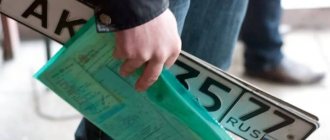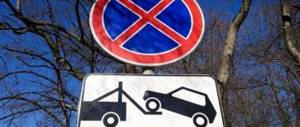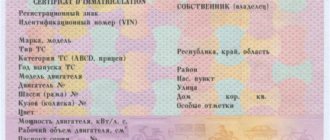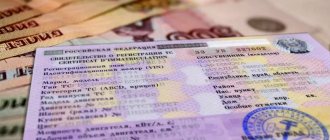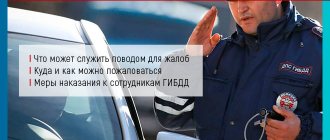Restriction of registration actions: instructions for use.
In recent years, the used car market has literally broken records. Used car sales have increased dramatically over the past few years. But at the same time, the number of vehicles subject to certain registration restrictions has also increased. To our regret, every year more and more car owners and buyers are faced with problems with their registration and re-registration with the State Traffic Inspectorate.
And this is despite the fact that there are a number of official services on the Internet that allow you to check any car not only for theft, but also for the presence of restrictions on registration actions with the traffic police.
But what to do if restrictive measures have already been imposed on the car, and the car owner needs to remove them? How to find out in advance which body has imposed a ban on registering a car with the traffic police? Let's figure it out together, friends.
First, let's determine what restrictions may be imposed on the property of the car owner. In particular, we will find out with you what restrictive measures can be imposed on the vehicle.
First, you and I need to understand on the basis of what legislative act in Russia certain restrictive measures can be imposed on a car.
The main regulatory law in Russia is the Federal Law “On Enforcement Proceedings” dated October 2, 2007 N 229-FZ.
- Thus, according to Law FZ-229 “On Enforcement Proceedings”, the bailiff has the right to seize the debtor’s property within the framework of enforcement proceedings, as an interim measure until the debt is paid or partial repayment of the debt begins.
That is, if enforcement proceedings are initiated against the owner for any debts by the bailiff service within the framework of Federal Law No. 229, then in accordance with Article 80 of this law, any property of citizens may be seized.
Who imposes the ban
The restriction is imposed only on the basis of a judicial act or a special resolution, which is created and maintained by the Federal Bailiff Service. Certain structures and services have the right to initiate sanctions:
- Courts . The situation arises as a result of resolving controversial issues related to the division or sale of property. For example, after a divorce, the vehicle remains with the spouse. The court will impose an obligation to pay compensation to the spouse for the car. He also has the right to additionally prohibit the registration of a vehicle.
- Customs . If the owner of the vehicle does not pay the fee during registration, then employees have the right, through judicial structures, to seize it until he pays off the debt.
- Police . If a car is stolen, the fraudster will want to resell the vehicle. To reduce the likelihood of a transaction, police authorities may prohibit actions with a car.
- Traffic police . In a situation where a traffic inspector fines a driver, but he is in no hurry to pay the fine, the authorities can complain to the court to impose a ban.
- Social support service . If the former spouse is the owner of the vehicle, but does not pay the due alimony amounts, then the wife has the right to file a complaint with the court. Then the owner will be prohibited from registering.
In order for a vehicle owner to have the legal right to drive and carry out various operations with his car, it must be registered with the traffic police. This will mean that government agencies are notified who is the owner of the vehicle . The owner of the car can use it like other property - sell it, rent it out, donate it.
What does “vehicle impound” mean?
Many citizens in the country confuse this restriction of registration actions imposed by a bailiff with the seizure of a vehicle. In fact, friends are not the same thing. The arrest itself implies a specific prohibition on the disposal of this property.
Here are the cases in which property seizure is used as part of enforcement proceedings:
— Ensuring the safety of property that is subject to transfer to the claimant or sale.
— Execution of a court decision on confiscation of property.
— Execution of a court decision to seize property that belongs to the debtor and is owned by him or third parties.
The seizure of the debtor's property may consist of the following, namely, both in prohibiting the disposal of property, and (or) in limiting the right to use property or in its seizure.
In what cases can a car not be seized?
According to the Federal Law “On Enforcement Proceedings”, in particular Article 80, paragraph 1.1 , seizure of property is not allowed if the amount of debt (collection amount) is less than 3,000 thousand rubles.
That is, if you owe someone less than 3,000 thousand rubles , then even if enforcement proceedings are initiated against you, the bailiff service will not be able to seize your property (including your car) as a measure to ensure payment of the debt.
Prohibition on registration of a car.
By the way, it is worth immediately noting that bailiffs rarely resort to seizing vehicles at the initial stage, preferring to first impose restrictive registration measures on vehicles.
Thus, this is also done within the framework of Article 80 of Federal Law No. 229, namely, paragraph 4 of this law, which provides for restrictions on the right to use property .
What does this mean for the car owner? Everything is very simple. The bailiff has the right, after initiating enforcement proceedings, to limit registration actions with the debtor's car by informing the traffic police authorities, which, in accordance with Order of the Ministry of Internal Affairs of the Russian Federation No. 1001 of November 24, 2008 (as amended in the current version) have the right to limit registration actions with the car by court decision , by decision of the bailiff service, investigative departments, Investigative Committee, Prosecutor's Office or Ministry of Internal Affairs, and other government agencies. structures.
How to remove the ban on car registration? Step-by-step instruction!
Good afternoon. Today's article is a step-by-step instruction on how to remove the ban on registration of a car.
The article will be of interest to both car owners and potential buyers.
What is a ban on registration actions?
All cars with state registration plates are “registered”.
Vehicle registration is handled by the State Traffic Safety Inspectorate. Registration actions include:
- changing information about the owner of the vehicle (full name, address, etc.)
- changing vehicle data (replacing license plate units, changing design, changing color, etc.).
The ban on registration actions greatly complicates the life of the car owner - the traffic police refuses to carry out any registration actions with the vehicle and it is practically impossible to sell such a car at a normal price.
How to remove the ban on car registration?
In order to lift the ban on car registration, it is necessary to find the initiator of the ban, find out from him the reason for imposing the ban, eliminate it and provide documents confirming the fact of imposing the ban.
How to find the initiator of the ban?
In order to find out who and for what reason imposed a ban on registration actions, go to the traffic police website in the vehicle check section and copy the VIN code from the PTS or from the registration certificate.
Enter the code here:
Click on the button to check for restrictions:
And, if there are restrictions, we get this result:
As you can see, it is written that the ban on registration was imposed by a bailiff and the number of the enforcement proceedings is indicated. The red arrow shows that when you click on this text, you will be redirected to the website of the bailiff service, where you will find out information about the amount of debt.
How to remove the ban?
Attention!
If you believe that there are no grounds for applying a ban on car registration, you have the right to go to court and appeal the actions of the person who imposed the ban! It is impossible to give advice on going to court within the framework of the article; write questions in the comments.
Depending on who imposed the ban, the algorithm for lifting it will be different. In 99% of cases, the ban on registration is imposed by the federal bailiff service, and in 1% of cases by other law enforcement or judicial authorities.
If the ban is imposed by bailiffs, the algorithm of actions is as follows:
- we go to the bailiff and pay the debt, by the way, this can be done online
- We take a certificate of debt settlement and ask to lift the ban on registration, just in case, we take a certificate from the bailiff stating that the ban has been lifted.
- if after 14 days, the traffic police website still shows a ban on registration, call the bailiff and check whether he has made changes to the database.
- if the bailiff claims that he has made changes, but the traffic police does not lift the ban on registration, we go to the traffic police at the place of residence and ask to lift the ban by showing a certificate from the bailiff.
The ban will be lifted!
The traffic police very often begins to balk, in this case there is no need to argue with them, just write a free-form application addressed to the head of the REO and ask for an answer within the period established by the law on citizens' appeals - 30 days.
What should I do to avoid facing restrictions on car registration in the future?
Everything is extremely simple, as we have already found out above, the ban is imposed either by bailiffs, and sometimes they do it by mistake, or by law enforcement agencies. Accordingly, in order not to face a registration ban, you must:
- pay bills on time.
- avoid debts on taxes and fines.
- don't break the law.
- have a rare first and last name (this way you are less likely to be confused.
I understand perfectly well that it is quite difficult to comply with all these rules and it is definitely not an option to change your first and last name in order to encounter bailiffs less often, but there is only one alternative - not to buy a car...
How to avoid buying a car with registration restrictions?
In fact, it is enough to do only 2 checks to eliminate the registration ban by 99%.
- When buying a car, be sure to check it using the VIN code on the traffic police website; naturally, there should be no restrictions.
- Check the debts of the person in whose name the car is registered on the website of the bailiff service (it happens that there is a debt, but there are no restrictions on registration, it is better to refuse to buy such a car or be ready to pay the debt).
What to do if you bought a car with a registration ban?
To begin with, using the method described above, we find out who imposed the ban and what the reason was.
We decide whether to look for the debtor (if the debt is large) or pay the debt ourselves.
If you decide to pay another person’s debt, do not forget to get a certificate from the bailiffs about lifting the ban on registration, the fact is that you have no connection with this car for the state, and if for some reason the ban is not lifted, but you have paid the debt , without this certificate no one will even talk to you. The certificate from the bailiffs looks like this:
I repeat - the traffic police, for the last few years, has been reluctant to accept such a certificate, and waits for the bailiffs themselves to lift the restriction in the database, but if you ask for a written refusal, they usually accept the document.
After that, register the car according to these instructions.
If you decide to get the debtor to pay off the debt himself, you can mentally prepare to drive an unregistered car for several years. One “activist” owes me 430 rubles for more than 5 years. Immediately after the trial, he sold the car, and still has not paid off the debt; when I asked for the VIN code on the traffic police website, the car is still registered there, I don’t envy the buyers….
Conclusion.
That's all for me today. I hope that the article on how to remove the ban on registration of a car has fully answered all your questions.
If you want to add to the article, write comments.
Best regards, administrator
Share
Here's how you can check whether there are restrictions on registration actions with a car at the traffic police
But what if you are planning to buy a used car, but are afraid that registration restrictions are imposed on it? Indeed, if there are restrictive measures in relation to such a car, the new owner, after signing the purchase and sale agreement, simply will not be able to re-register the vehicle in his name within the period established by law...
To our deep regret, there have been many such cases in recent years. Especially after the traffic police authorities simplified the procedure for re-registration of cars after concluding a purchase and sale agreement and other agreements in accordance with the Civil Code of the Russian Federation.
After all, now the owner of a car can sell it without first deregistering it with the State Traffic Inspectorate. Simply, after signing such an agreement, the new owner is obliged to re-register the car in his name within 10 days. As a result, it turns out that the parties to such a purchase and sale transaction must make settlements among themselves under the agreement before registration with the traffic police.
In order for future buyers to know in advance what kind of car they are purchasing, the traffic police authorities have introduced an online service on the Internet to check the car for search, for the presence of restrictions on registration actions with the vehicle.
Also, anyone can check the desired car by personally contacting the traffic police.
What is the transaction ban?
The ban on transactions affects the main actions of car registration: registration, deregistration. In this case, the reasons stated by the car owner for the need for registration or other grounds for automatic lifting of the ban do not have any role. The ban imposed by government authorities will apply regardless of the condition or even the existence of the vehicle (for example, in the case of official disposal). This means that it will not be possible to liquidate a car in order to easily cancel the ban imposed on it. The ban will exist until it is documented to be canceled by the same structure that made the decision to impose registration restrictions. If the disposal of the car was carried out with the issuance of appropriate confirmations, then in order to remove the imposed restrictions, the owner will need to pay off the debt in one way or another in order to request the lifting of the ban.
At the same time, the established ban applies only to legal actions carried out with the car. The vehicle itself is not impounded and can continue to be used by the owner. But, unlike registration restrictions, seizure prohibits complete disposal of the vehicle, including the right to use it up to and including seizure. That is, if sanctions are imposed on registration, the owner of the car can still drive it, but does not have the right to:
- present;
- exchange;
- carry out re-registration to another owner (in case of sale).
From a legal point of view, a vehicle with a registration ban imposed can be sold. But the new owner will not be able to carry out official registration and registration with the traffic police until the prohibitory measures are lifted.
Why can they impose restrictions on registration actions with the traffic police with a car?
According to the current legislation, the bailiff service can impose restrictions on registration actions with a car by decision of various government bodies, namely regarding debts, legal disputes between owners, etc. contradictions.
Here are the reasons why registration restrictions may be imposed on a car:
- — Debts from traffic police fines.
- — Debts for any administrative fines.
- — Tax debts.
- - Rent debts.
- — Debts for alimony.
- — Litigation regarding ownership or division of property (disputes between individual entrepreneurs, legal entities, heirs, relatives, etc.)
- — For insurance cases related to regressive claims.
- — At the request of the Customs authorities.
- — At the request of the judicial authorities in the interests of organizations that have the car as collateral. For example, under loan agreements.

